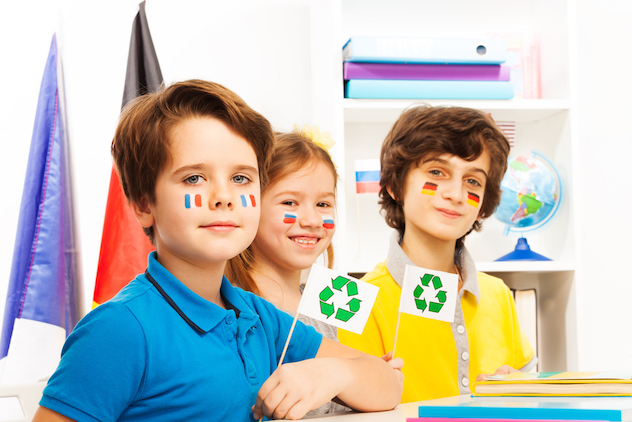The world’s top 10 recycling nations.
October 1 marks World Habitat Day, and reflects on the livability of our towns and cities. The Day is intended to remind the world that we all have the power and the responsibility to shape the future of our cities and towns.
This year’s theme is Municipal Solid Waste Management. So, what does it take to be ranked as a country that is doing well for waste management and recycling? MiNDFOOD investigates.
According to a 2018 report, “Recycling – Who Really Leads the World?” from Eunomia and the European Environmental Bureau, Germany is the best in the world with a 56 percent recycling rate. Overall, European countries took eight of the top 10 slots.
Both the OECD and the European Commission produce annual municipal waste and recycling statistics, which eliminate some (but far from all) of the inconsistencies. However, there are a few high recyclers that are members of neither organisation – Singapore and Taiwan, for example, report recycling rates above 55%. Bringing these data together allows the report writers to present a world league table of reported recycling rates, which shows Germany as the world leader on 66%.
The current top 10 recycling countries are:
- Germany
- Taiwan
- Wales
- South Korea
- Belgium
- Switzerland
- Austria
- Slovenia
- Netherlands
- Singapore
The big news from the report isn’t Germany’s dominance – it’s Wales that is stealing the headlines with its Cinderella story. Over the past 20 years, Wales increased its recycling rate from five percent to more than 50 percent. The island country of three million, part of the United Kingdom, is on record pace to hit its goal of zero waste by 2050.
While strong national policies and goals greatly help to drive recycling, they’re not the end-all be-all. Getting real results depends entirely on how well programmes are implemented at the local level. Here are the state and local polices behind Europe’s high performance:
- Widespread collection programmes for recycling and compost.
- Legally mandated recycling goals.
- Requirements to separate materials, supported by disposal bans.
- Funding for infrastructure and programmes, both through government funding and extended producer responsibility laws.
- Financial incentives to encourage recycling, including bottle deposits, pay-as-you-throw volume-based pricing and disposal fees/taxes.







